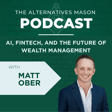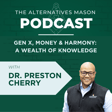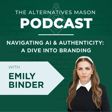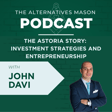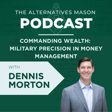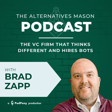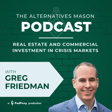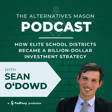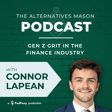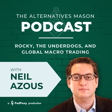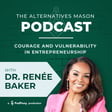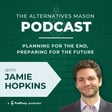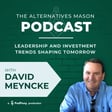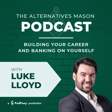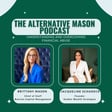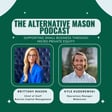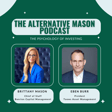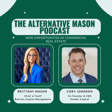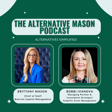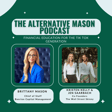
The Alternatives Mason: Building Alts Knowledge Brick by Brick | Episode 12 | No BS Wealth Featuring Stoy Hall
Welcome to The Alternatives Mason: Building Alts Knowledge Brick by Brick. Banrion Capital Management uses technology to help independent advisors scale and educate themselves on alternative investments. Since education is such a big piece of the Banrion mission and business, we are excited to kick off this series to dive into the nits and grits of the alternatives space. Episode 12 "No BS Weath" features Stoy Hall, Founder & CEO of Black Mammoth, a modern family office & holistic financial planning firm.
Born and raised in Omaha, Nebraska, Stoy went to college in Des Moines, Iowa, graduating from Drake University with a BSBA in finance and a minor in business law and insurance. In addition to being a four- year letter winner for the Bulldogs during college, Stoy worked at the Boys and Girls Club of Central Iowa as the professional teen development officer. This experience led him to choose a career in financial planning and wealth management.
Stoy’s motto: "Ridding the world of financial illiteracy," came from personal experience. It is his personal belief that financial literacy shouldn’t be limited to the ultra-wealthy, and it is his personal mission to end financial illiteracy in the general population. Stoy is as active in the community as he is in his business, participating in events and seminars that include Females & Finance and the Black and Brown Business Summit.
Connect With Stoy
Learn more about Black Mammoth
Learn More About Banrion: Banrion Capital Management
Follow Brittany on 𝕏: @Brittany_Mason
Follow Banrion on 𝕏: @Banrion_Capital
Subscribe to our YouTube Channel: @BanrionCapital
Important Disclosures:
The opinions expressed on the “The Alternative Mason Podcast” are for general informational purposes only and are not intended to provide specific advice or recommendations for any individual or on any specific security.
It is only intended to provide education about the financial industry. To determine which investments may be appropriate for you, consult your financial advisor prior to investing. Any past performance discussed during this program is no guarantee of future results.
The guests featured on this program may be participants on Banrion Capital Management’s platform. As such Banrion may receive payment for their participation as a platform partner.
Any indices referenced for comparison are unmanaged and cannot be invested into directly. As always please remember investing involves risk and possible loss of principal capital; please seek advice from a licensed professional.
Investments are not FDIC-insured, nor are they deposits of or guaranteed by a bank or any other entity, so they may lose value.
Investors should carefully consider investment objectives, risks, charges and expenses. This and other important information is contained in the fund prospectuses and summary prospectuses, which can be obtained from a financial professional and should be read carefully before investing.
Statements attributed to an individual represent the opinions of that individual as of the date published and do not necessarily reflect the opinions of Banrion Capital Manage
